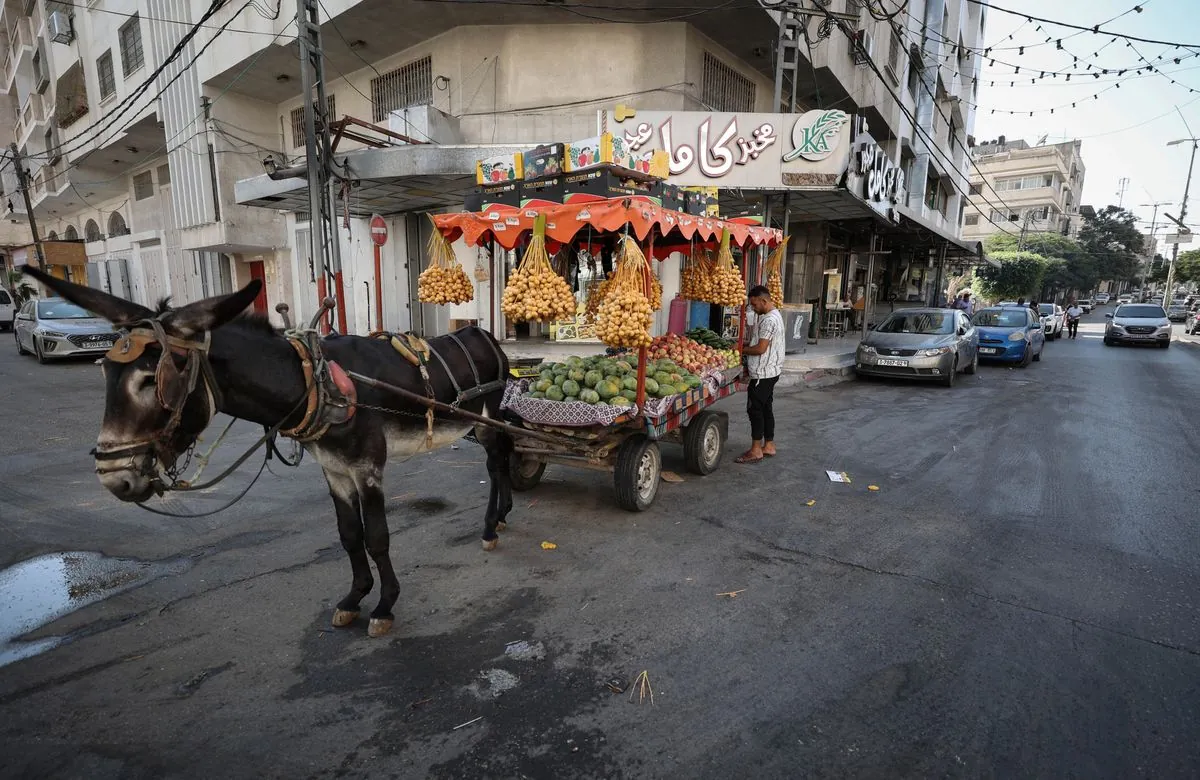Gaza Crisis: Donkeys Become Lifeline Amid Devastation and Fuel Shortages
In war-torn Gaza, donkeys have become essential for transport and emergency evacuations. With severe fuel shortages and debris-filled streets, these resilient animals are saving lives despite facing malnutrition and injuries.

In the midst of Gaza's ongoing humanitarian crisis, an unexpected hero has emerged: the humble donkey. These resilient animals, domesticated for over 5,000 years, have become a crucial lifeline for the people of Gaza, providing essential transportation in an area devastated by conflict.
Dr. Saif Alden, head of the mobile vet team for Safe Haven for Donkeys in Gaza, a British veterinary NGO, reports that donkeys are now being used for evacuations and even replacing ambulances in some cases. This development comes as a result of the severe damage to infrastructure and extreme fuel shortages that have rendered much of Gaza inaccessible to motor vehicles.
The situation has become so dire that donkeys played a critical role in a recent medical emergency. Dr. Alden recounts a night when a friend's wife, in labor and trapped in an area under bombardment, was safely transported to the hospital by donkey in just 20 minutes. "It was a donkey that saved her and her babies' lives," he stated.

The United Nations estimates that nearly 11 months of heavy fighting has created more than 42 million tonnes of debris, blanketing the streets of Gaza. This, combined with soaring fuel prices - from $1.5-$2 per liter before the conflict to $30-$40 now - has made donkeys indispensable for transportation.
However, these animals are not immune to the hardships of the crisis. Dr. Alden reports that many donkeys and horses in Gaza are suffering from malnutrition, dehydration, and injuries related to the conflict. Since April 2024, Safe Haven for Donkeys in Gaza has treated approximately 800 animals, many with shrapnel wounds and other health issues.
"The vast majority of donkeys have half a meal every day or two. Many have no food at all. They starve to death."
The charity faces significant challenges in providing care, including the need to purchase medicines on the black market at inflated prices. A shipment of veterinary supplies remains stuck at the Rafah border, further complicating their efforts.
Donkeys' role in conflict zones is not new. Throughout history, including both World Wars, these animals have been crucial in transporting supplies and wounded soldiers. Their sure-footedness and ability to navigate rough terrain make them invaluable in areas with limited infrastructure.
Dr. Alden emphasizes the critical importance of donkeys in the current crisis: "If we didn't have donkeys, how would it be possible for us to live? To transfer the injured to hospitals? To bring water? We live in exceptionally difficult circumstances, but in this case, donkeys are our hope."
As the situation in Gaza continues to evolve, these resilient animals remain a symbol of hope and survival, showcasing their intelligence, adaptability, and crucial role in supporting human life amidst devastating circumstances.


































